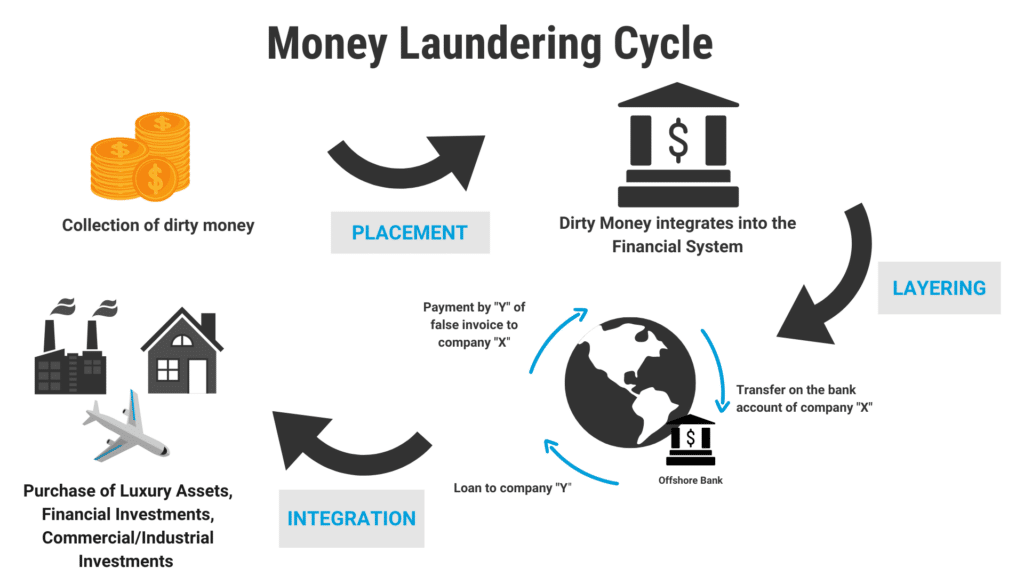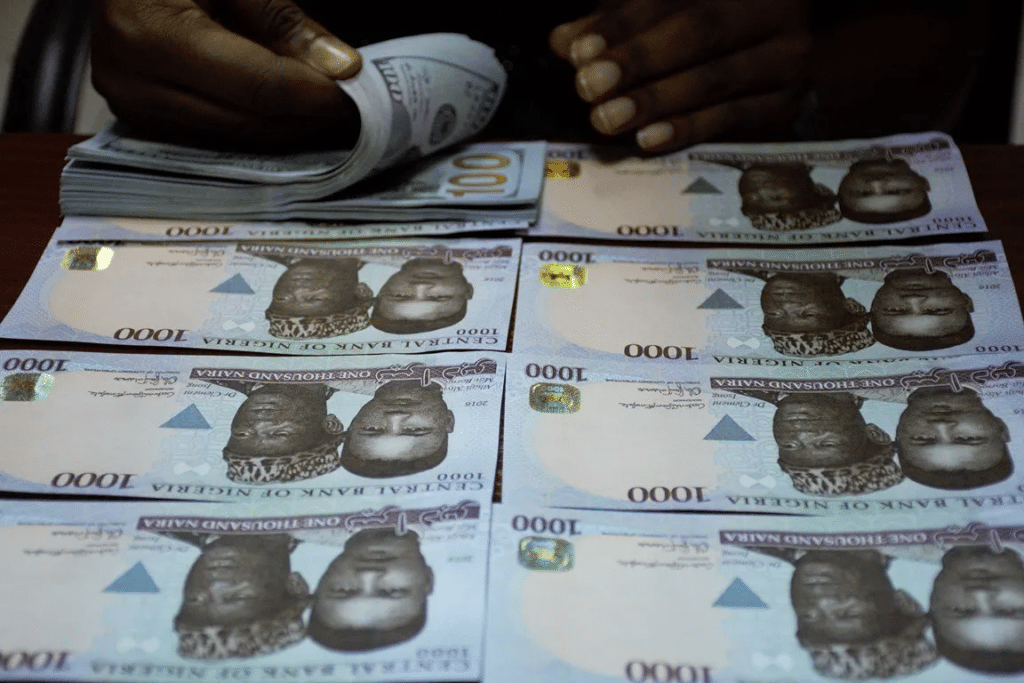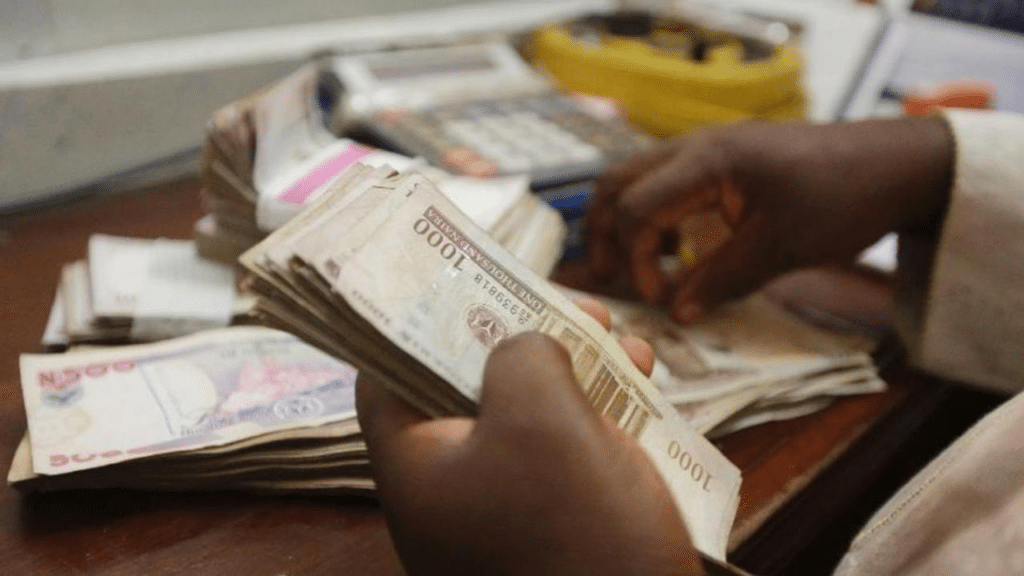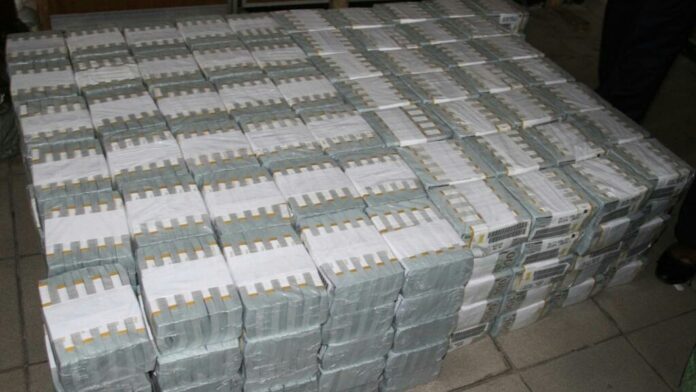Anyone who lives in Nigeria knows that money laundering in Nigeria is not a new phenomenon. In fact, it is not even a secret. The perpetrators roam freely in society, appearing in public and flaunting their wealth in the faces of the masses and all the while getting richer. Unfortunately, it is not a Nigerian phenomenon alone; it is rampant worldwide.
In a recent article, the Managing Director of Transparency International pointed out that corruption around the world is facilitated by the ability to launder and hide proceeds derived from the abuse of power, bribery and secret deals.
According to the article, “Dirty money enters the financial system and is given the semblance of originating from a legitimate source often by using corporate vehicles offering disguise, concealment, and anonymity. For example, corrupt politicians used secret companies to obscure their identity in 70 percent of more than 200 cases of grand corruption surveyed by the World Bank.”
The article further lamented that proceeds of corruption are lodged in foreign banks or invested in luxurious mansions, expensive cars or lavish lifestyles. The culprits do this “with impunity and in blatant disregard for the citizens or customers they are supposed to serve”.
- MORE IN THIS SERIES:
- Equipping the Harvest: Must-Have Tools for Agricultural Producers
- The Science of Business Naming: Avoid These Costly Errors & Mistakes
- How Much is Pounds to Naira?
What is Money Laundering?
Money laundering is a term that describes the process of concealing the proceeds of illegal activity and making them appear as though they have been derived from legitimate sources. It is a serious crime with significant implications for the global economy and society.
Money laundering in Nigeria is a significant problem that has attracted the attention of law enforcement agencies and financial institutions. The purpose of money laundering is to make it difficult for authorities to trace the funds back to their illegal origin.
The process typically involves three stages: placement, layering, and integration. These form a cyclical process that allows illicit funds to enter the legitimate financial system, obfuscate their origins, and then reintegrate, appearing as legal tender.

Stages of Money Laundering
Placement
The first stage of money laundering is “placement” whereby “dirty” money is placed into the legal and financial systems.
After getting hold of illegally acquired funds through theft, bribery, and corruption, financial criminals move the cash from its source. This is where the criminal money is “washed” and disguised by being placed into a legitimate financial system, such as in offshore accounts.
But how is the placement money laundering stage achieved? There are several ways “dirty” money can be entered into the financial system. Here are six common examples of crimes associated with the placement stage in the process of money laundering in Nigeria.
- Invoice fraud: Invoice fraud is the most common technique used for transferring dirty money. Primary techniques include over-invoicing or under-invoicing, falsely described goods or services, and phantom shipping, where no items have been shipped and fraudulent documentation was produced to justify the payment abroad.
- Blending of funds: Here, businesses blend illegal funds with legitimate takings. It is typically done through cash businesses such as tanning salons, car washes, casinos, and strip clubs, as they have little or no variable costs. Historically, it was also done through washing salons and laundromats.
- Smurfing: Smurfing breaks a large sum into smaller and less-suspicious transactions below the reporting threshold. The illegal funds are often deposited into one or multiple bank accounts by multiple people, known as smurfs, or by a single person over a long period.
- Offshore Accounts: Laundered money is often placed through offshore accounts, which easily hides the real beneficial owners’ identity and is a way to evade paying taxes.
- Carrying Small Sums of Cash Abroad: Money can be placed by carrying small sums of cash abroad below the customs declaration threshold. Then, they pay this cash into foreign bank accounts before sending it back home.
- Through Aborted Transactions: With this, the money is transferred to a lawyer or accountant to hold until a proposed transaction is completed. The transaction is then canceled, and the funds go back to the criminal from an unassailable source.
SEE: 7 Useful Job Skills That Have Stood The Test Of Time

Layering
The layering stage separates the proceeds of criminal activity from their origin through many different techniques to layer the funds. One of the two critical components of money laundering in Nigeria is disguising the illegal source, which generally takes place in the layering stage.
Layering usually involves a complex system of transactions designed to hide the source and ownership of the funds. These activities can include using multiple banks and accounts, having professionals act as intermediaries and transacting through corporations and trusts, and layers of complex financial transactions. The purpose of these transactions is to disguise the so-called paper or audit trail and anonymize the criminals’ identities.
Integration
During the integration stage, the money is returned to the criminal from what seems to be legitimate sources. The criminal proceeds are now fully integrated into the financial system and used for any purpose, having been placed initially as cash and layered through several financial transactions. The “dirty” money is now absorbed into the economy, for instance, via real estate.

Integration is done very carefully from legitimate sources to create a plausible explanation for where the money has come from.
It is very difficult to distinguish between legal and illegal wealth at this stage. The launderer can use the money without getting caught. It is extremely challenging to catch the criminal if there is no documentation to use as evidence from the previous stages.
Money Laundering in Nigeria and Nigerian Politicians
Cases of corruption and money laundering are not unusual in Nigeria and a great number of high-profile corruption cases have remained inconclusive. Indeed, some former state governors who have cases to answer have brazenly come back to political reckoning. They confidently walk the streets today, deliberating on national issues.
In fact, a report by the EFCC claimed that between January and December 2012, it filed about 353 cases in different courts in the country with only about 53 convictions recorded.
It is worrisome that Nigerian leaders appear to handle corruption with levity. This has been the case with the late Sani Abacha who has been honoured by the Nigerian government despite detailed evidence of his misdeeds.
READ AlSO: Political Godfatherism in Nigeria: History and Consequences
Money Laundering in Nigeria and Abacha
As reported by This Day Live, after Abacha’s death, his successor General Abdulsalami Abubakar instituted a Special Investigation Panel to look into cases of swindled public funds and monumental looting of the treasury by his late predecessor. The panel’s task was to identify the culprits and help recover all properties or assets illegally acquired by the culprits.
The panel secured early records, which revealed that between November 1994 when Abacha took power and June 1998 when he died, he had taken funds from the Central Bank of Nigeria that totaled US$ 2,263,520,497.00 in cash withdrawals, travelers’ cheques, and telegraphic transfers. He did this by means of false security vote letters fraudulently claiming that the funds were needed for national security.
This is detailed in a US Department of Justice complaint filed in November 2013, which led to the freezing of assets in March 2014 and the forfeiture in August 2014 of over US$ 480 million in corruption proceeds hidden in bank accounts around the world by Abacha and his co-conspirators. As reported by the Department of Justice, the judgment is the result of the largest kleptocracy forfeiture action brought in the department’s history.

In other recoveries, last year the Swiss Ambassador to Nigeria Mr. Hans Hodel, said his country “had discharged its legal obligations to Nigeria by returning all the Abacha loot, estimated at more than US$ 700 million. We must praise the cooperation extended to Nigeria Civil Society Groups by the Swiss government in facilitating the return of the Abacha loot.”
And in June 2014, after a 16-year court battle, Nigeria was able to recover over $225 million stolen by Abacha and his associates and deposited in Liechtenstein.
Despite all this, shamefully, in early 2014, President Goodluck Jonathan honored the late Head of State Sani Abacha with a Centenary Award for his contributions to the nation.
ALSO READ: How To Survive On A Low Income In Nigeria: A Simple Guide
Money Laundering in Nigeria and Ibori

The case of James Ibori also illustrates why there is reason for concern about the lack of accountability when it comes to money laundering in Nigeria.
Ibori was governor of the oil-rich Delta State between 1999 and 2007 and was sentenced in September 2013 to 13 years imprisonment in Britain after pleading guilty in February 2012 to 10 counts of fraud and money laundering worth tens of millions of pounds. He had reportedly hidden some of his assets in the oil firm Oando, which passed from the company’s accounts to Ibori’s Swiss accounts.
Ibori’s case remains one of the biggest embezzlement cases witnessed in Britain, and his successful prosecution was also a rare example of a senior Nigerian politician being held to account for the corruption that blights Africa’s most populous country.
Meanwhile, prior to his sentence in Britain, a Federal High Court sitting in Asaba, Delta State, discharged Ibori on 17 December 2009 of all 170 charges of corruption brought against him by EFCC.
Consequences of Money Laundering in Nigeria
Money laundering in Nigeria has severe consequences not only on the economy and society but also globally.
The negative effects of money laundering include economic distortion and instability, loss of control of economic policy, loss of revenue, and undermining of the integrity of financial markets, leading to increased crime and corruption. Moreover, the consequences of money laundering can be reputational, operational, and risk concentration. This can result in the loss of profitable businesses, liquidity problems through fund withdrawals, cessation of correspondent banking services, and a weakened financial system.
In addition to economic and social consequences, money laundering has legal and regulatory consequences in Nigeria. The Nigerian government has enacted laws such as the Money Laundering (Prohibition) Act and the Economic and Financial Crimes Commission Act to combat money laundering. Failure to comply with these laws can result in severe penalties, including imprisonment, fines, and seizure of assets.
Financial institutions also face legal and regulatory consequences for failing to detect and prevent money laundering, including reputational damage and loss of operating license. The Nigerian government, financial institutions, and individuals must make concerted efforts to prevent and combat money laundering in Nigeria to promote economic stability, integrity, and democracy.
SEE: Odeshi – The African Bulletproof: Does It Really Work?
Money Laundering in Nigeria: In Conclusion
Criminals use various methods in the process of money laundering in Nigeria, including currency smuggling, shell companies, and false invoicing. Other methods include structuring, where individuals make multiple deposits under the threshold limit to avoid detection, and gambling, where criminals use casinos and other forms of gambling to launder money.
According to a 2012 report by Global Financial Integrity, a Washington-based anti-corruption organization, US$129 billion flowed out of Nigeria over a period of a decade through crime, corruption, and tax evasion. The EFCC cited this amount as “fraudulently transferred out of Nigeria in 10 years”.
The process of money laundering in Nigeria is extremely complex and can involve multiple individuals involved in organized crime. It is important to note that, in reality, there is often an overlap in these three stages of money laundering. As in some financial crimes, there is no requirement for the illegal funds to be “placed”.
Overall, money laundering in Nigeria is a serious problem that significantly impacts the country’s economy. To combat this issue, authorities need to be vigilant and use a range of measures, including stricter regulations and enforcement, to prevent criminals from illegally using Nigeria’s financial system.





